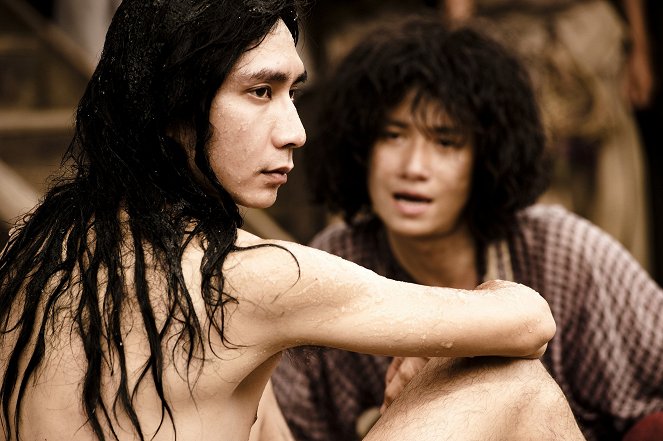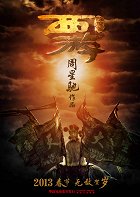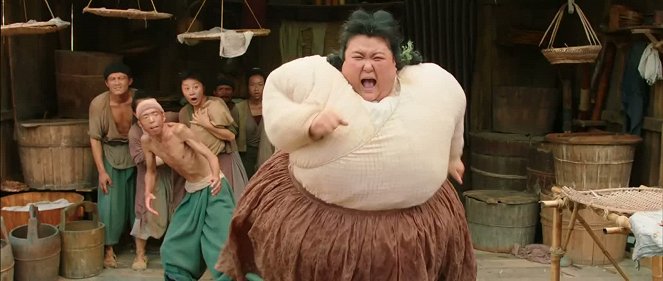Operatőr:
Shung-Fai ChoiZeneszerző:
Raymond Ying-Wah WongSzereplők:
Qi Shu, Wen Zhang, Chrissie Chau, Bo Huang, Chi-Ling Chiu, Di Yang, Wenhui He, Mei'e Zhang, Sihan Cheng, Steven Min-Hang Fung, Tina Tang, Zhengyu Lu (több)Tartalmak(1)
Journey to the West: Conquering the Demons is a 2013 Chinese action-comedy film, a loose comedic re-interpretation of the Chinese novel 'Journey to the West' by Wu Cheng'en - based on the story that inspired the cult TV series Monkey. This is a world plagued by demons, who cause its human inhabitants unspeakable suffering. Young demon hunter Xuan Zang, fearlessly guided by his belief in giving himself for the greater cause, risks his all and conquers a water demon, a pig demon and the demon of all demons, Sun Wukong. He embraces them as his disciples, and melts them with love. Meanwhile, Xuan Zang discovers the true meaning of Greater Love himself. In order to atone for their own sins and save the common people, the four of them embark on a journey to the West that's full of challenges. (Roadshow Entertainment)
(több)Videók (2)
Recenziók (1)
Stephen Chow’s long-awaited return to directing is surprising at first glance due to its limited cadence of physical and verbal humour and, conversely, an overabundance of CGI extravagance. However, that doesn’t mean that the erstwhile master of Cantonese comedy has sold himself out. Journey to the West: Conquering the Demons merely shows him in a slightly different light than that in which he had generally been perceived before. Chow has always created purely folk spectacles and his film prequel to the notorious Journey to the West, or The Monkey King, is a modern variation of folk legends. The straightforward situational humour is effectively combined with the fantastical into a distinctively carnivalesque whole, where unrealistic bombast and a certain morbidity have their natural place. Though comparison to Jeffrey Lau’s crazy CGI mishmashes would be appropriate, this time Chow appears to be even more of an adherent of Tsui Hark, whose projects like A Chinese Ghost Story also revived the tarnished fantasy genre of Chinese culture for modern audiences. Indeed, we can see Chow’s entire career in the context of dusting off or invoking the styles of past decades, from his early works, when he brought new blood into the Cantonese comedy established by the Hui brothers, to Kung Fu Hustle, which pays tribute to the ground-breaking Cantonese classic The House of 72 Tenants.
()
Galéria (72)
Photo © Huayi Brothers Media


